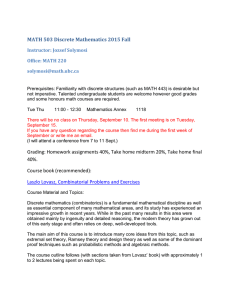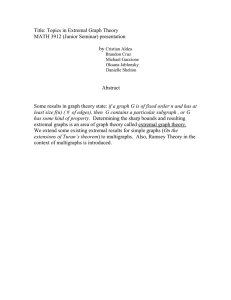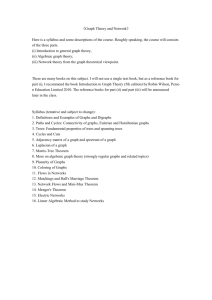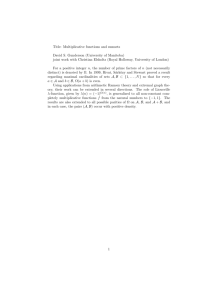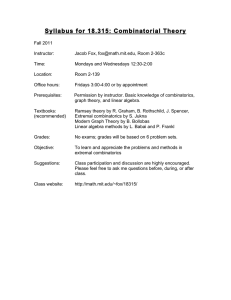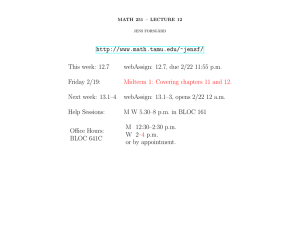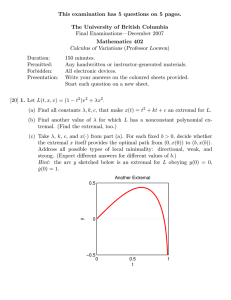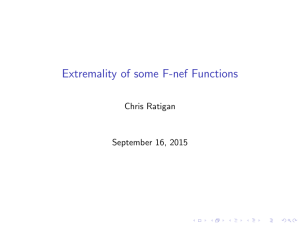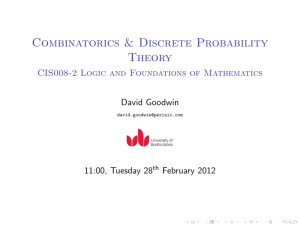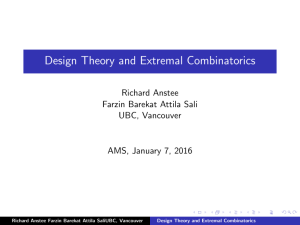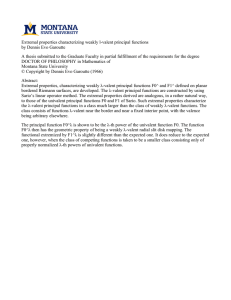Outline for Proposed Course MATH 503: Introduction to Discrete Mathematics
advertisement
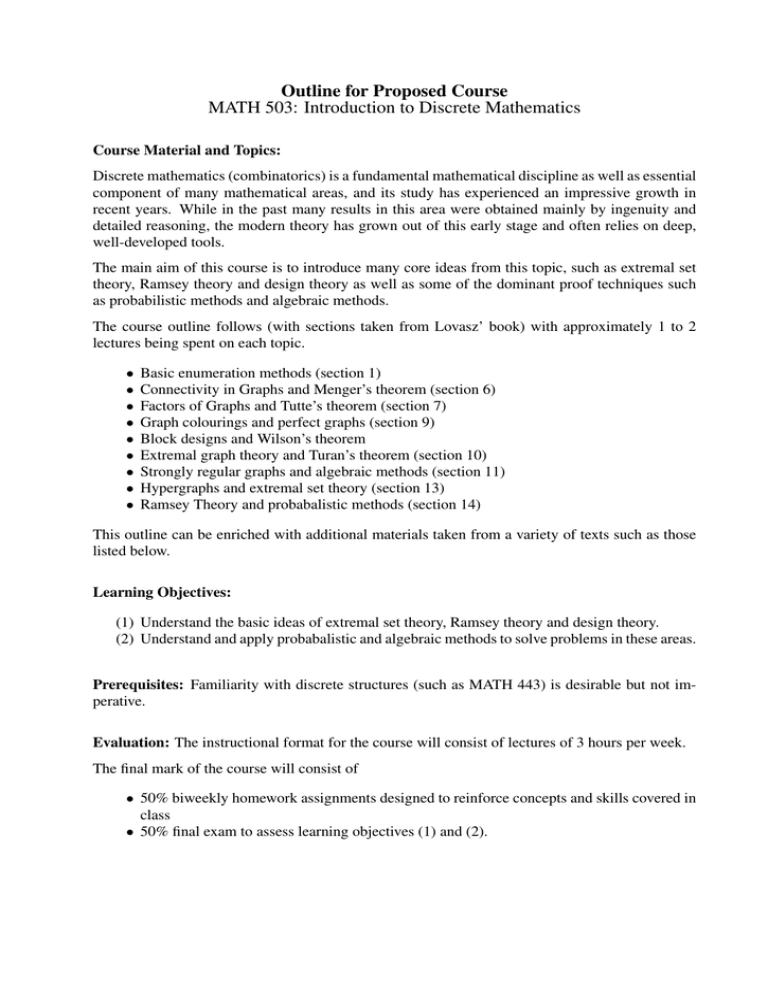
Outline for Proposed Course MATH 503: Introduction to Discrete Mathematics Course Material and Topics: Discrete mathematics (combinatorics) is a fundamental mathematical discipline as well as essential component of many mathematical areas, and its study has experienced an impressive growth in recent years. While in the past many results in this area were obtained mainly by ingenuity and detailed reasoning, the modern theory has grown out of this early stage and often relies on deep, well-developed tools. The main aim of this course is to introduce many core ideas from this topic, such as extremal set theory, Ramsey theory and design theory as well as some of the dominant proof techniques such as probabilistic methods and algebraic methods. The course outline follows (with sections taken from Lovasz’ book) with approximately 1 to 2 lectures being spent on each topic. • • • • • • • • • Basic enumeration methods (section 1) Connectivity in Graphs and Menger’s theorem (section 6) Factors of Graphs and Tutte’s theorem (section 7) Graph colourings and perfect graphs (section 9) Block designs and Wilson’s theorem Extremal graph theory and Turan’s theorem (section 10) Strongly regular graphs and algebraic methods (section 11) Hypergraphs and extremal set theory (section 13) Ramsey Theory and probabalistic methods (section 14) This outline can be enriched with additional materials taken from a variety of texts such as those listed below. Learning Objectives: (1) Understand the basic ideas of extremal set theory, Ramsey theory and design theory. (2) Understand and apply probabalistic and algebraic methods to solve problems in these areas. Prerequisites: Familiarity with discrete structures (such as MATH 443) is desirable but not imperative. Evaluation: The instructional format for the course will consist of lectures of 3 hours per week. The final mark of the course will consist of • 50% biweekly homework assignments designed to reinforce concepts and skills covered in class • 50% final exam to assess learning objectives (1) and (2). Rationale for Course: Instructors: • • • • • Richard Anstee Joel Friedman Andrew Rechnitzer Jozseph Solymosi Stephanie van Willigenburg Textbooks and References: • • • • • • Lovasz, Vesztergombi and Pelikan (2003), Discrete mathematics Lovasz (2007) Combinatorial problems and exercises Diestel (2005) Graph Theory 3rd Edition Alon and Spencer (2000) The probabilistic method Stanley (1986, 1999) Enumerative combinatorics Volumes 1 and 2. Babai and Frankl (1992) Linear algebra methods in combinatorics with applications to geometry and computer science 2
